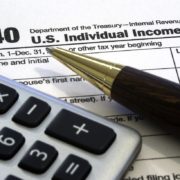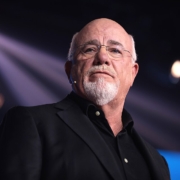How the CARES Act Affects Retirement Accounts – Part 3 – 05/01/20
Money Matters – Skloff Financial Group Question of the Month – May 1, 2020
By Aaron Skloff, AIF, CFA, MBA
Q: We read the article How the CARES Act Affect Retirement Accounts – Part 1 and How the CARES Act Affect Retirement Accounts – Part 2. Can you explain the most frequently asked questions (FAQs) about redepositing withdrawals from retirement accounts?
A: The Problem – Limitations on Redepositing (Repaying) Withdrawals (Distributions) from Retirement Accounts
Prior to the CARES Act, you could withdraw funds from a retirement account (versus a trustee-to-trustee transfer) and redeposit or repay the withdrawal to a retirement account. If a distribution from an IRA or a retirement plan was paid directly to you, you could deposit all or a portion of it in an IRA or a retirement plan within 60 days. A 20% federal tax withholding would have been withheld from a distribution from a retirement plan, so you had to use other funds to roll over the full amount of the distribution.
Beginning January 1, 2015 but before the CARES Act, you could have made only one rollover from an IRA to another (or the same) IRA in any 12-month period, regardless of the number of IRAs you owned. After the CARES Act, there are several changes to withdrawal (distribution) and redeposit (repay) rules. Let us look at some of the most FAQs below.
Are retirement account owners under the age 59 ½ subject to a 10% federal early withdrawal penalty?
No. Qualifying coronavirus-related distributions (QCRDs) completed between January 1, 2020 and December 31, 2020 are not subject to the 10% federal early withdrawal penalty for those under the age 59½.
Are retirement owners subject to a 20% mandatory federal income tax withholding on employer sponsored retirement plan withdrawals?
No. QCRDs completed in 2020 are not subject to the 20% mandatory federal income tax withholding from employer sponsored retirement plans. Note: QCRDs are not allowed from money purchase or defined benefit plans.
How much can be withdrawn from and then redeposited back into a retirement account?
QCRDs (withdrawals) up to $100,000 in aggregate from all plans and IRAs can be redeposited (repaid) in part or in full to an eligible retirement account or plan. The redeposit will be treated as though it were a trustee-to-trustee transfer, avoiding federal income tax.
How long do you have to redeposit a withdrawal from a retirement account?
QCRDs can be redeposited within three years after the date that the distribution was received.
How long do you have to pay taxes on withdrawals?
QCRDs are included in income ratably over a three-year period, starting with the year in which you receive your distribution. For example, if you receive a $12,000 QCRD in 2020, you would report $4,000 in income on your federal income tax return for each of 2020, 2021, and 2022. However, you have the option of including the entire distribution in your income for the year of the distribution.
Are loan limits increased on employed sponsored retirement plan?
The CARES Act permits employers to increase the maximum loan amount up to the lesser of $100,000 (minus outstanding plan loans of the individual), or the individual’s vested benefit under the plan. Loans must be made between March 27, 2020, to September 22, 2020.
Can loan repayments be delayed on employer sponsored retirement plans?
If a loan is outstanding on or after March 27, 2020, and any repayment on the loan is due from March 27, 2020, to December 31, 2020, that due date may be delayed under the plan for up to one year.
Action Step — Work Closely with a Registered Investment Adviser (RIA) to Best Utilize the CARES Act
Work closely with an RIA to utilize the estate, financial, retirement and tax benefits provided by the CARES Act.
Aaron Skloff, Accredited Investment Fiduciary (AIF), Chartered Financial Analyst (CFA), Master of Business Administration (MBA) is CEO of Skloff Financial Group, a Registered Investment Advisory firm. He can be contacted at www.skloff.com or 908-464-3060.












